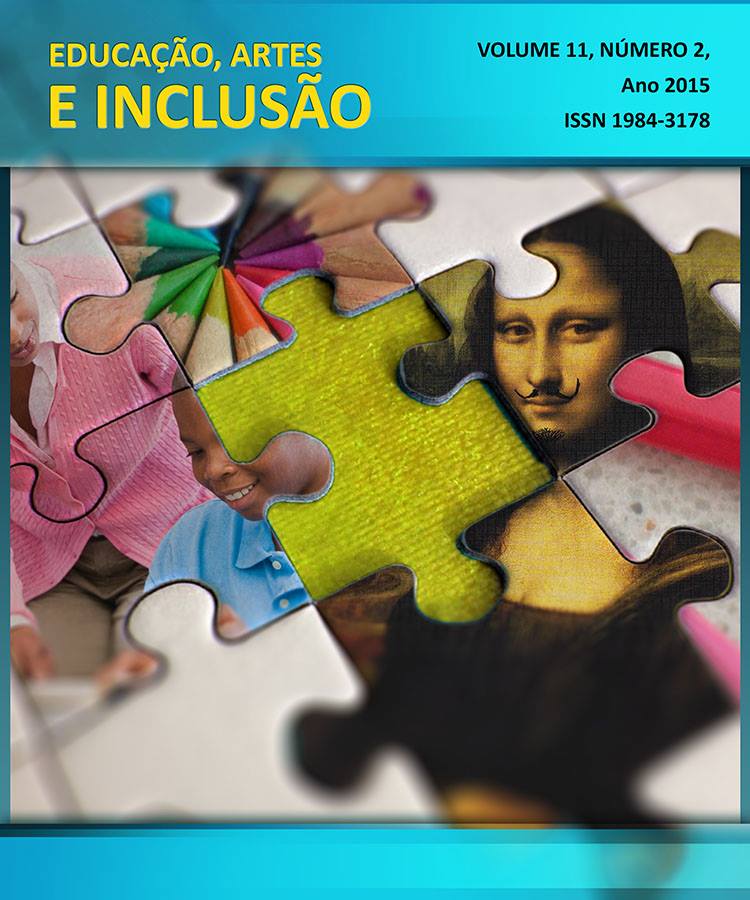LIBRAS NA ÁREA DE CIÊNCIAS NATURAIS: BUSCA POR ARTICULAÇÃO ENTRE CONHECIMENTOS
DOI:
https://doi.org/10.5965/198431781122015008Keywords:
Ciências naturais. Libras. Formação de professores. Aprendizagem. Alunos surdos.Abstract
A disciplina de Libras atualmente é uma exigência legal. Partindo desse princípio, o objetivo deste texto é apresentar algumas reflexões acerca das percepções de alunos do curso de Ciências Naturais de uma instituição de ensino superior no município de Imperatriz-MA sobre o aprendizado de sinas, da Língua Brasileira de Sinais (Libras) na área de ciências. O estudo se configura como uma pesquisa-ação, com abordagem qualitativa e pautada na análise de conteúdo, conforme Bardin (2012). A investigação revelou a importância de se empreender o estudo da Libras nos cursos de formação de professores na área de ciências naturais, visando oportunizar aos alunos surdos conhecimentos dessa área. Pode-se inferir ainda que a partir da construção de aportes teóricos e práticos na área da Libras é possível, mesmo que de forma elementar, propiciar aos futuros educadores aprendizagens significativas para sua área de atuação com pessoas surdas, buscando nessa conjuntura os preceitos da educação para todos.Downloads
Downloads
Published
How to Cite
Issue
Section
License
Copyright Statement
The Educação, Artes e Inclusão is a journal that follows the Free Access Policy. The articles published by the journal are free of charge, intended for educational and non-commercial applications. The articles whose authors are identified represent the expression from the point of view of their authors and not the official position of the Educação, Artes e Inclusão Journal or the Educação, Artes e Inclusão Research Group.
Authors who publish in this journal agree to the following terms:
(A) Authors retain the copyright and grant the journal the right of first publication, with the work simultaneously licensed under the Creative Commons Attribution License which allows the sharing of the work with acknowledgment of authorship and initial publication in this magazine.
(B) Authors are authorized to take additional contracts separately, for non-exclusive distribution of the version of the work published in this journal (eg publish in institutional repository or as a book chapter), with acknowledgment of authorship and initial publication in this magazine.
(C) This journal provides public access to all of its content, as this allows for greater visibility and scope of published articles and reviews. For more information on this approach, visit the Public Knowledge Project.
This journal is licensed under a Creative Commons Attribution-NonCommercial-ShareAlike 4.0 International License. This license allows others to remix, adapt and create from your work for non-commercial purposes, and although new work must give you due credit and cannot be used for business purposes, users do not have to license such derivative works under the same terms.



